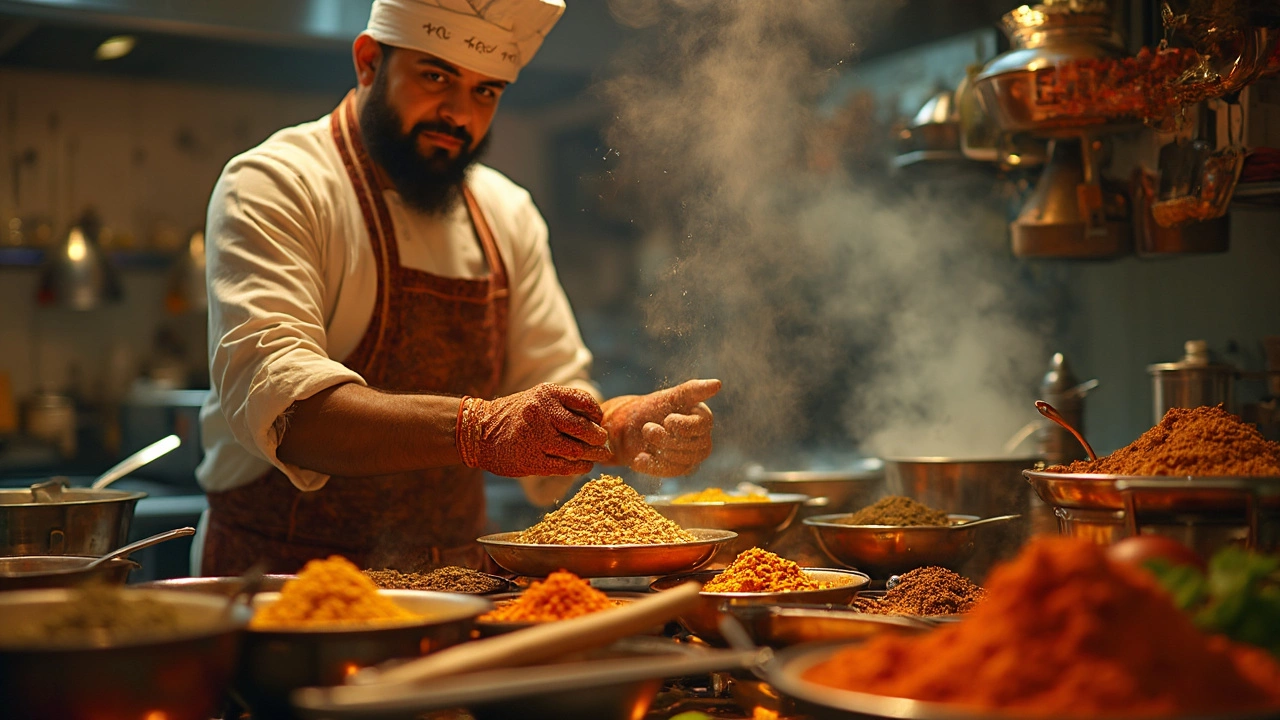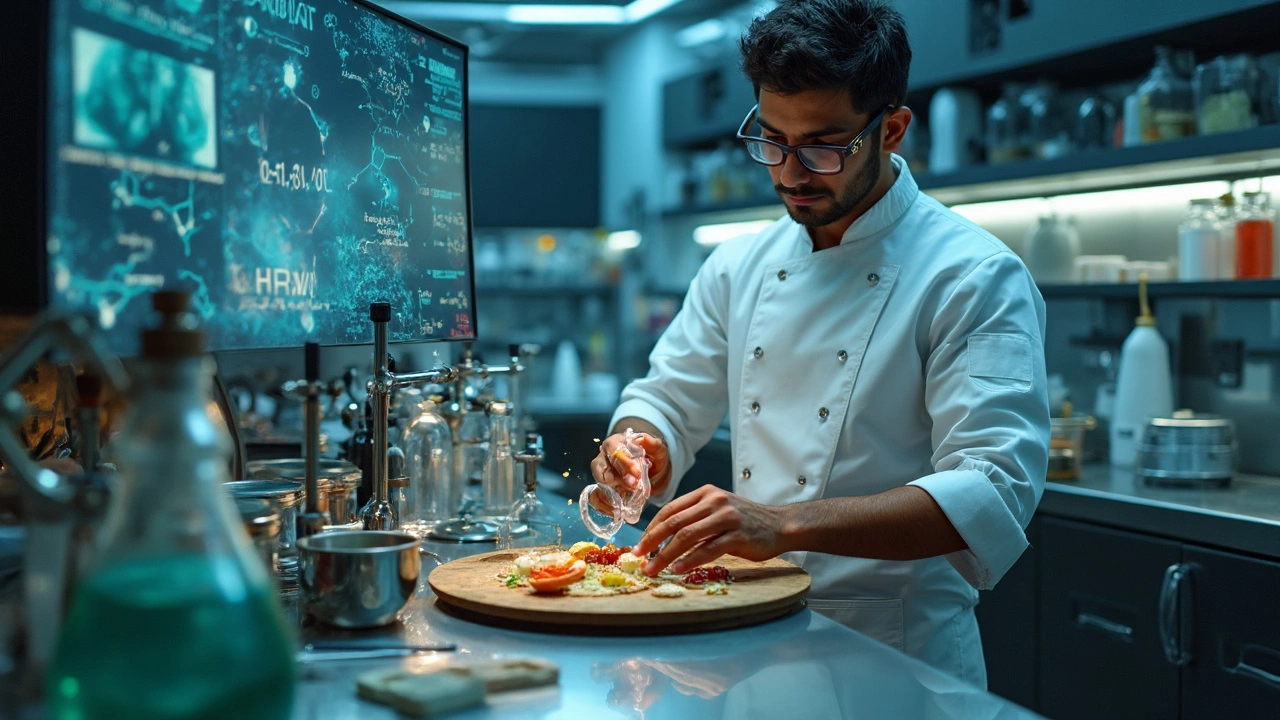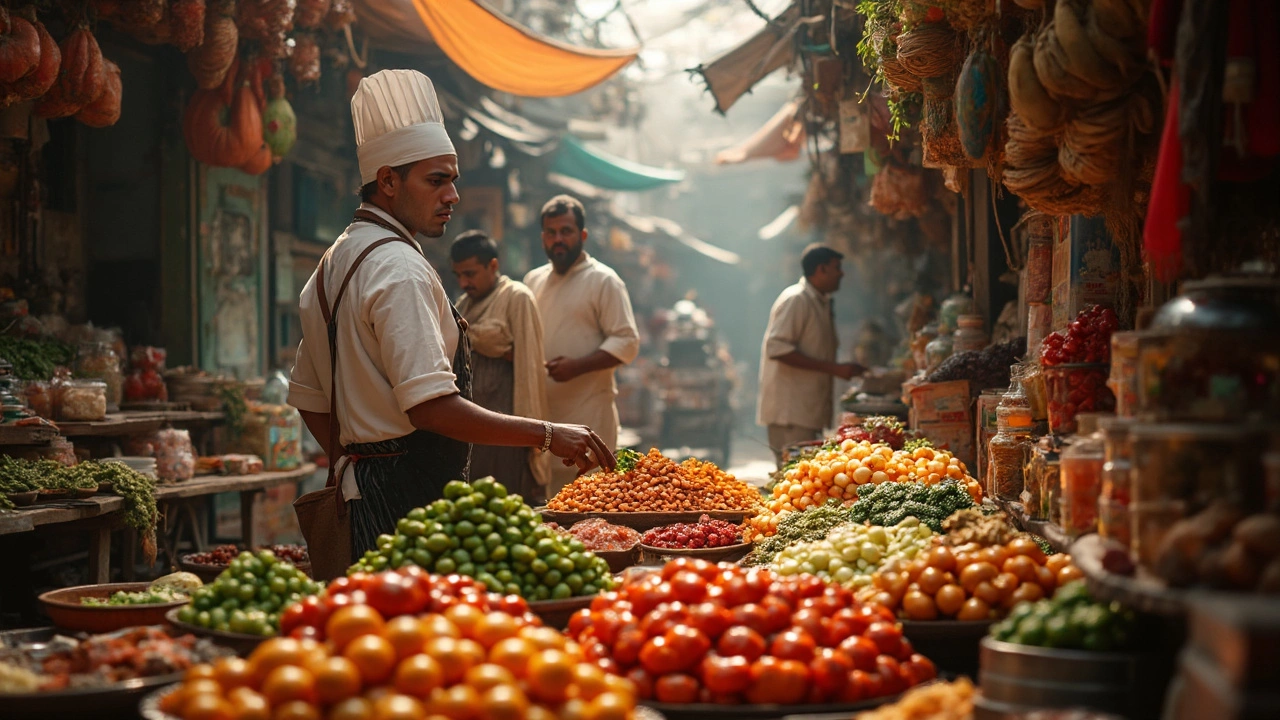Can You Become a Chef with a Food Science Degree?

Here's the million-dollar question: can you actually become a chef with a food science degree? Surprisingly, it's more than possible— it's a pretty smart move. A food science degree doesn't just land you in a lab; it can offer a unique edge in the culinary world. Imagine having the scientific know-how to back up your culinary creations. You're not just throwing ingredients together; you're understanding how and why they work the way they do.
Food science mixes biology, chemistry, and cooking. It's like cooking with the power to predict how flavors will mingle or how textures can change. While traditional culinary training hones your craft, a food science background allows you to see cooking from a new angle. You're blending precise scientific principles with creative flair. That’s where the real magic happens!
- Understanding Food Science
- Bridging Culinary Skills and Food Science
- How a Degree Can Boost Your Chef Career
- Exploring Career Paths in Food Science
- Real-Life Success Stories
Understanding Food Science
So, what’s the deal with food science? Think of it as the brains behind what goes on in the kitchen. It’s not just stirring and frying; it’s about understanding what makes a cake rise or a sauce thicken. Food science digs deep into the biology, chemistry, and physics happening in every dish you whip up.
A food science degree can offer insights into the chemical properties of food ingredients and how different processes affect their taste, texture, and nutritional value. This is crucial, especially if you're aiming to be a chef with a solid science grounding. You'd learn how to create recipes that not only taste good but are also healthy and safe.
Here's something fascinating: Did you know that by understanding the Maillard reaction—a chemical reaction between amino acids and reducing sugars that gives browned food its flavor—you can enhance your grilling results? Knowledge like this helps you bring science smack into the middle of your culinary feats.
"Understanding the science of food doesn’t just make you a better chef; it makes you an innovator," says Dr. Jane Lee, a renowned food scientist.
Moreover, the food science field is booming. From food safety to product development, it offers a bunch of opportunities. A food scientist’s expertise is valued now more than ever, especially since the global market constantly demands new and better food products.
Check out this quick look at the job growth potential:
| Year | Food Scientist Job Growth |
|---|---|
| 2023 | 7% |
| 2024 | 8% |
| 2025 | 10% |
See? This isn't just a classroom theory—it's a career springboard. So, if you’re leaning toward being a chef, remember that your food science degree could be your secret ingredient. It’s all about mixing that scientific know-how with your culinary dreams!
Bridging Culinary Skills and Food Science
So, how does a food science degree fit into the world of culinary arts? Think of it as adding a turbo boost to your cooking skills. While traditional chefs rely on experience and intuition, food science graduates bring a deep understanding of the chemistry and biology behind what makes a dish delicious.
Let’s break it down. Imagine you're trying to perfect a soufflé. Knowing the role of egg proteins and their behavior under heat can save you multiple failed attempts. This kind of knowledge comes straight out of a food science textbook and into your kitchen.
Consider the art of making sourdough bread. When you understand the intricacies of fermentation, gluten formation, and enzymatic reactions, you're not just following a recipe—you're mastering the craft with scientific precision. It’s like having a toolkit that includes both culinary intuition and scientific backing.
There are specific areas where culinary science and food science intersect beautifully. Here are some examples:
- Texture Modification: Making desserts like panna cotta involves understanding gelatin and its gelling properties, which is a plus for food scientists-turned-chefs.
- Flavor Pairing: By knowing the molecular makeup of ingredients, food science provides insights into why certain flavors mesh well, opening new avenues for creativity.
- Food Safety: Understanding microbes is crucial for creating safe, delicious dishes, especially with raw or fermented ingredients.
In this context, having a food science degree can be a real game-changer. You’re able to innovate, create, and troubleshoot with a level of understanding that puts you ahead in the culinary race. This combination is not just about mixing ingredients; it’s about knowing how those ingredients interact and transform. So, if you're eyeing culinary success, don’t underestimate the power of science in your chef's hat!

How a Degree Can Boost Your Chef Career
Thinking about transforming your passion for food into a career? Having a food science degree could be your golden ticket to the chef world. First off, it gives you a deep understanding of what happens when food cooks. You’re not just following recipes; you're unlocking the secrets behind the techniques. Ever wondered why searing meat locks in flavors? With a food science background, you'll not only do it but also explain it like a pro.
Knowledge of food safety is another major perk. When you're working in a kitchen, maintaining hygiene and food quality can't be skipped. A food science degree equips you with the skills to ensure that your dishes are both tasty and safe. This can help you stand out, especially if you're looking at roles in high-end restaurants or food processing units looking for specialists.
Your degree also brings an element of innovation to the table. Be it creating new textures or flavors, you can experiment with confidence because you understand the science. Think of chefs like Heston Blumenthal who have a reputation for using molecular gastronomy. A food science background can give you the tools to follow in similar footsteps.
Additionally, it’s a great way to build credibility in the industry. When potential employers see that you’ve studied food science, they know you bring skills beyond the kitchen. This can open doors to more career paths and opportunities. It's not just about being a chef; you could work in product development, quality control, or even teach culinary arts.
| Career Path | Average Salary |
|---|---|
| Research Chef | $75,000 |
| Quality Assurance Specialist | $60,000 |
| Culinary Professor | $70,000 |
In short, merging culinary skills with food science doesn't just push you into any kitchen role; it elevates your career, blending art with science.
Exploring Career Paths in Food Science
If you're pondering over a food science degree, get ready to find a world that's way bigger than what you might expect. Sure, there's the traditional route of working in a lab, developing new food products, or ensuring quality control, but that’s just scratching the surface.
Picture this: you could become a product developer, creating new snacks or innovative food products. You can also dive into roles focusing on food safety, ensuring that what hits the grocery shelves is safe and healthy. These roles often have you working close with government regulations, which can be pretty crucial stuff.
Some folks with a food science degree find their passion in research, working with universities or private companies to study the latest food trends and breakthroughs. They might explore how we can make food more nutritious or sustainable, which is a big deal as we look toward the future.
If you're curious about numbers, consider this: a food safety manager can make anywhere from $55,000 to $95,000 annually, depending on the industry and location. This is according to recent industry surveys. Those in research and development might find similar figures, with senior positions offering even more.
And here's the kicker — all this science-based background can act like rocket fuel for your dreams of becoming a chef. Having the scientific insights can be your secret weapon in creating dishes or designing a menu that not only tastes great but also meets nutritional goals and regulatory standards.
In essence, a food science degree doesn’t limit you; it opens doors to numerous sectors within the food industry. Whether it’s a bustling restaurant kitchen, a research lab, or developing cutting-edge products, this degree is your ticket to an exciting culinary journey. The real question is: which path are you going to take?

Real-Life Success Stories
Diving into some real-world scenarios, let's start with Nathan Myhrvold, who’s a rockstar in combining food and science. With a background as the former CTO of Microsoft and a deep love for cooking, he co-authored 'Modernist Cuisine'. This isn't just any cookbook; it's a science-lover’s dream, explaining the nitty gritty details of kitchen tech and food chemistry. He used his food science degree to challenge what’s possible in the kitchen.
Then we have Ali Bouzari, a culinary scientist and educator who co-founded Pilot R&D, a creative think tank for the food industry. He’s known for using his science background to reinvent how top chefs think about ingredients and cooking methods. His work showcases how blending culinary arts with scientific knowledge can push the boundaries of what we taste and how we experience food.
You can't forget about the culinary path of Shirley Corriher, who holds a degree in biochemistry. She's an expert at making the science of cooking accessible and entertaining. Her book 'CookWise' is packed with insights that bridge the gap between science and the art of cooking, making it a staple for aspiring chefs and food scientists alike.
These folks show that the mix of food science and culinary arts isn't just a trend; it’s a gateway to changing how we cook and eating experiences. People with a food science degree successfully transitioning into chef roles prove that with knowledge and creativity, anything’s possible in the world of gastronomy.